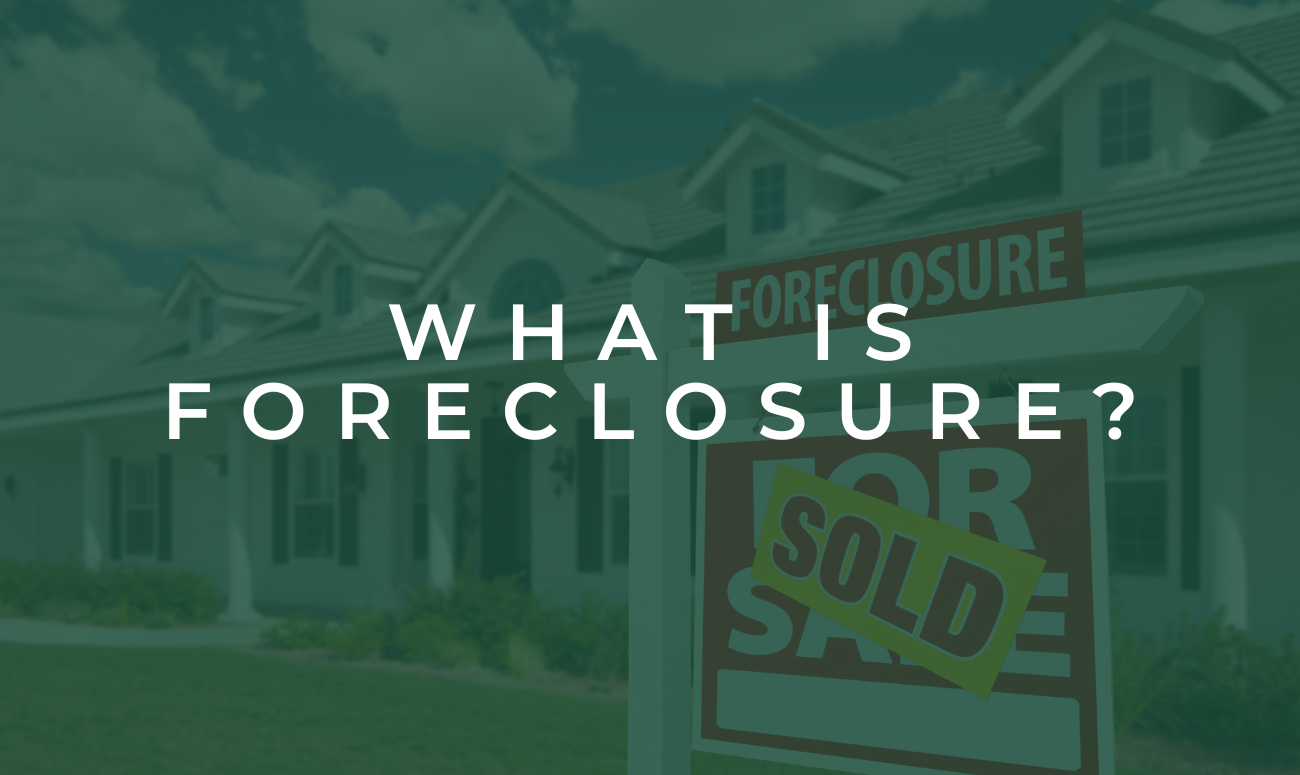What is Foreclosure? Your In-Depth Guide
However, having extensive knowledge of the foreclosure process is vital – whether experiencing financial hardship personally or aiming to buy a foreclosed home. In addition, this comprehensive guide will provide a thorough understanding of what foreclosure entails.
Defining Foreclosure
Furthermore, foreclosure enables a lender to reclaim a property when mortgage payments stop. Specifically, it refers to the legal process started when a homeowner defaults on their loan by failing to make payments as originally agreed. Now, let’s explore the foreclosure process more closely.
The Foreclosure Moratorium
In recent years the CARES Act implemented a foreclosure moratorium, temporarily preventing lenders from foreclosing. This gave struggling homeowners needed flexibility. Homeowners could also seek forbearance during this time to pause mortgage payments.
For federally-backed loans, September 30, 2021 was the deadline to request initial forbearance. Additionally, the federal moratorium was extended through December 31, 2021. Check the Consumer Finance Bureau site for updated housing relief news.
The Step-By-Step Foreclosure Process
While specific laws differ by state, the key phases of foreclosure are similar countrywide:
Early Intervention
Prior to foreclosure, a loan must be at least 120 days late, with some exceptions. Lenders must diligently inform delinquent borrowers of alternatives to foreclosure. Even after filing, homeowners often still have options to avoid repossession.
Foreclosure Notice
The first legal step happens when lenders refer loans to foreclosure counsel. Attorneys then file a complaint or default notice based on the state. Homeowners can still seek loss mitigation after receiving notice.
Judicial vs. Non-Judicial Foreclosures
There two types of foreclosure protocols:
Judicial – Required in some states, allowed everywhere. It involves lenders suing homeowners in court. Homeowners can respond before the home proceeds to auction. This tends to take longer than non-judicial foreclosure.
Non-Judicial – Permitted if the mortgage has a power of sale clause or is tied to a deed of trust. This enables lenders to auction the home after proper warning without going through courts.
Eviction
Post-foreclosure, residents may get an eviction notice giving them limited time (typically 3-30 days) to vacate. If they disregard notices, legal action can be pursued against them.
Credit Impacts
A foreclosure stays on credit histories for 7 years after the first missed payment. The credit score impact varies but is broadly negative. Poor credit due to foreclosure can hamper one’s ability to rent or buy again.
Avoiding Foreclosure
If you receive a default notice, alternatives still exist to keep your home:
Request Forbearance
Pausing mortgage payments through forbearance allows homeowners rebuilding finances after hardship to avoid foreclosure. Missed payments must eventually get repaid.
Refinance
Refinancing into a more affordable mortgage before missing payments can prevent an impending default. This requires currently being up-to-date on payments.
Repayment Plan
If past financial troubles have resolved, loan servicers may offer customized repayment solutions to get outstanding balances current. Typically, an extra fixed amount gets paid monthly until the deficit is met.
Reinstatement
Making a lump-sum payment for all missed installments can bring a mortgage current again if finances have recovered after a hardship.
Deed in Lieu of Foreclosure
With a deed in lieu, the homeowner voluntarily surrenders the property deed to the lender, releasing themselves from the mortgage debt while losing ownership. This avoids some credit damage from completed foreclosure.
Short Sale
If approved by the lender, a short sale allows homeowners to sell the home for less than what is owed on the mortgage. While they lose ownership and proceeds from the sale, deficiency balance is waived and credit impact reduced.
Getting Support
The Department of Justice provides a list of free/low-cost legal help for judicial cases. Hiring a lawyer can be beneficial if legitimately contesting repossession. The National Consumer Law Center also offers foreclosure defense guidance for homeowners representing themselves.
Avoiding Scams
Distress brings vulnerability. Numerous predatory schemes falsely claim to stop foreclosures for large upfront fees. Verify legitimacy before sending money or agreeing to anything.
Community Impacts of Foreclosures
So far we’ve examined the foreclosure process for individual homeowners. But widespread foreclosure activity also substantially impacts whole neighborhoods and communities:
Falling Home Values
As foreclosure inventory rises nearby, property values decline under the supply-demand principle. Nearby bank-owned properties directly compete with sellers seeking price validation through appraisals/CMAs, dragging down values. This erosion gradually spreads outward into surrounding neighborhoods.
Lost Tax Revenue
Local municipalities depend heavily on property taxes to fund vital services like schools, infrastructure, and emergency response. But heavy foreclosure volumes severely constrain these critical income streams through compounding property value deterioration. Per the National League of Cities, every foreclosure siphons nearly $20,000 in tax collections and upkeep costs over its distressed lifespan.
Increased Urban Blight
Prolonged vacancy invites criminal activity while creating hazardous, aesthetically unpleasant blight. According to joint research from the National Fair Housing Alliance and Center for Responsible Lending, nearly 50% of surveyed cities confirmed links between high foreclosures and destructive blight. Vacant homes frequently become illegal dumping grounds or get entirely stripped of valuables like copper pipes, necessitating publicly-funded demolition.
More Homelessness
The National Coalition for the Homeless names foreclosures as a leading driver of contemporary homelessness surges. Newly displaced households struggle to secure transitional housing without rental history or sufficient funds, while losing community/employment stability.
Lower Civic Participation
Research points to convincing associations between high foreclosures and dampened civic engagement, eroding social cohesion long-term. Displaced ex-owners understandably prioritize securing basic needs during psychological distress, limiting community involvement. Compounding civic participation declines undermine vibrant neighborhood functionality over time.
Economic Spillover Effects
The National League of Cities found an average $477,000 home value reduction across units neighboring a single foreclosure. Such equity erosion weakens household balance sheets and consumer spending capacity. Replicated broadly, this cascades into contracting demand, business revenue, and jobs.
Municipal Budget Crises
With property taxes accounting for about 72% of local revenue, tapering proceeds amid housing uncertainty cause intensifying budget deficits. Simultaneously, cities face inflated public obligations to address symptoms like blight and homelessness amidst funding shortages, often necessitating painful agency budget cuts or fee hikes.
Ripple Impacts on Housing Markets
Foreclosures typically occur in waves, initially decimating subprime borrowers. But ensuing credit contractions eventually cascade across the whole market. The combined effects of skittish lenders, erased equity, and reduced buyer capacity leads to a plunge in activity until prices rebalance supply-demand dynamics. The entire market then suffers evaporated equity for years following a foreclosure crisis.
In short, individual foreclosures acutely damage communities, setting off self-perpetuating cycles of lost equity, unstable consumption, urban decay, rising homelessness and economic uncertainty. Municipalities also incur huge indirect costs from reduced tax revenue and inflated public obligations to mitigate issues like blight. But civic disengagement may be the most concerning long-term consequence, steadily eroding the social fabric underlying neighborhoods.
Navigating the Foreclosure Process So far we’ve thoroughly examined the step-by-step foreclosure process and explored the sweeping community impacts of widespread foreclosure activity. Now let’s focus on actionable strategies for navigating foreclosure if you receive a default notice for your property.
Act Quickly
Act Quickly Once foreclosure paperwork is filed, time becomes extremely limited. Verify whether your state follows judicial or non-judicial protocols, which dictate different response windows. Non-judicial cases generally lead to auction within 20-120 days while judicial timeframes extend from 6-12 months. Prompt engagement is critical regardless.
Know Your Rights Continuously evolving state statutes shape available defenses and loss mitigation options, so comprehensively understanding current regulations is extremely useful. Consult reputable resources like pro bono housing counselors or real estate lawyers to illuminate state-specific rights. Recognize you hold distinct legal rights whether your loan is bank-owned or government-backed. Become an informed advocate.
Evaluate Your Situation Default rarely stems from an outright unwillingness to pay. Job losses, health emergencies, family deaths, or predatory lending can trap even responsible borrowers. Before strategizing, honestly assess what catalysted the delinquency. Were hardships enduring or temporary? How have circumstances transformed? This informs readiness to fight for or relinquish the property.
Seek Forbearance
For households overcoming temporary hurdles hoping to retain homes long-term, petitioning lenders for forbearance agreements allows financial stabilization time. These arrangements permit reduced or suspended payments for defined 6-12 month terms. Just ensure clarity regarding repayment duties once forbearance concludes to avert re-default.
Prioritize Communication Contact mortgage servicers directly and persistently to voice needs, ask questions, submit applications, and confirm document receipt. Record misplacement and delays are commonplace, so following up is fundamental. Retain thorough notes logging representative names, reference numbers, discussion contents, and promises made.
Explore Modifications Loan modifications make distressed loans more affordable through extended timelines, lowered rates, or reduced principal. Modifications offer 5 years of payment relief typically. Servicers are often receptive provided it prevents costlier foreclosure. Construct thorough hardship letters clearly demonstrating need if interested.
Federal Help
Apply for Federal Help The government-implemented Home Affordable Modification Program (HAMP) lowers monthly payments to 31% of verified gross income and forgives partial loan balances if compliance sustains 12 months. Validate eligibility then complete applications through your servicer.
Compare All Mitigation Options Beyond forbearance agreements and loan changes, additional loss mitigation alternatives exist like mortgage reinstatements, repayment plans, short sales, or deeds in lieu of foreclosure. Contrast the pros, cons and eligibility criteria of each to make informed decisions.
Obtain Legal Guidance Housing attorneys provide specialized expertise regarding state foreclosure statutes, lender duties, and borrower rights that can prove invaluable for constructing cases, negotiating alternatives, and preventing missteps. Tap these resources whenever viable. If unaffordable, research self-guided defense tactics.
Avoid Scams
Distressed homeowners encountering default face heightened vulnerability. Innumerable duplicitous schemes falsely advertise guaranteed foreclosure rescues for exorbitant upfront fees. Never blindly furnish payments sans intensive vetting, document analysis, company verification, guarantee acquisition, and second opinions. Reputability is imperative.
In summary, defensively resisting foreclosure mandates hustling to outpace ticking clocks, thoroughly investigating all options based on your situation, leveraging specialized legal guidance pertaining to lender responsibilities and state provisions, plus safeguarding against deceitful actors peddling false hope. Still, taken step-by-step, navigating the process is completely feasible.
If you are looking for a St Petersburg Realtor visit https://avalongrouptampabay.com/




